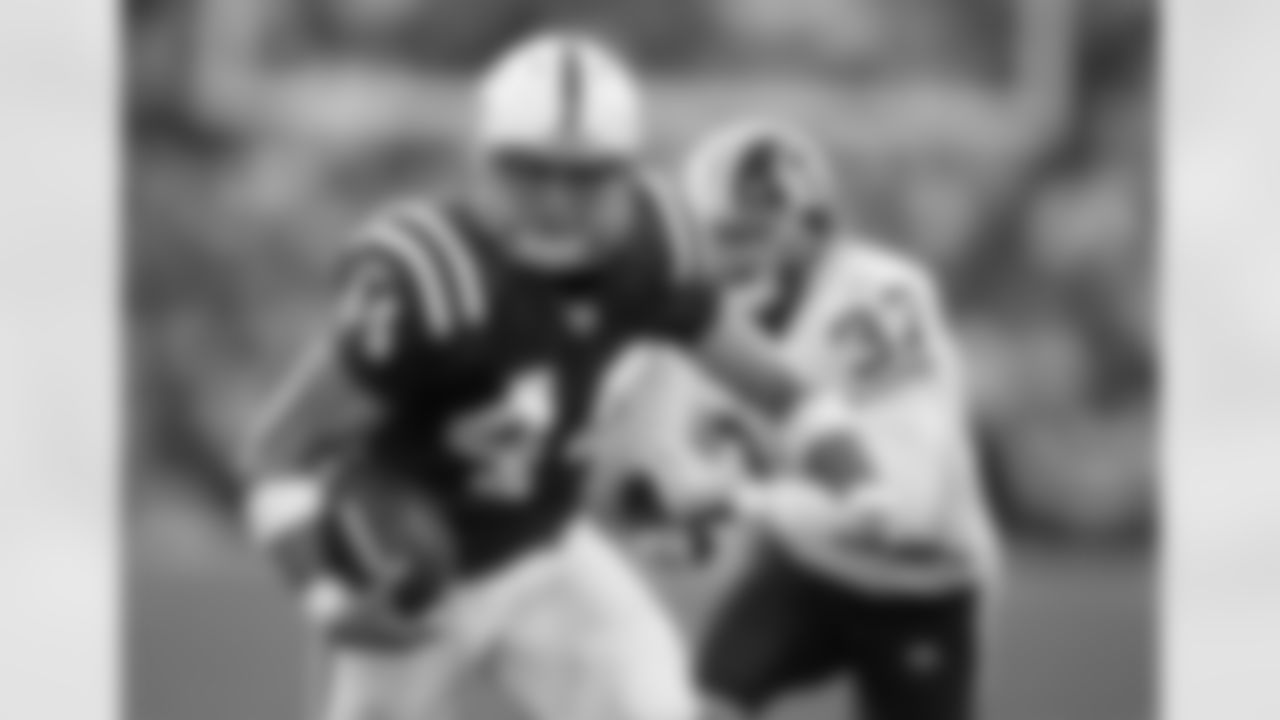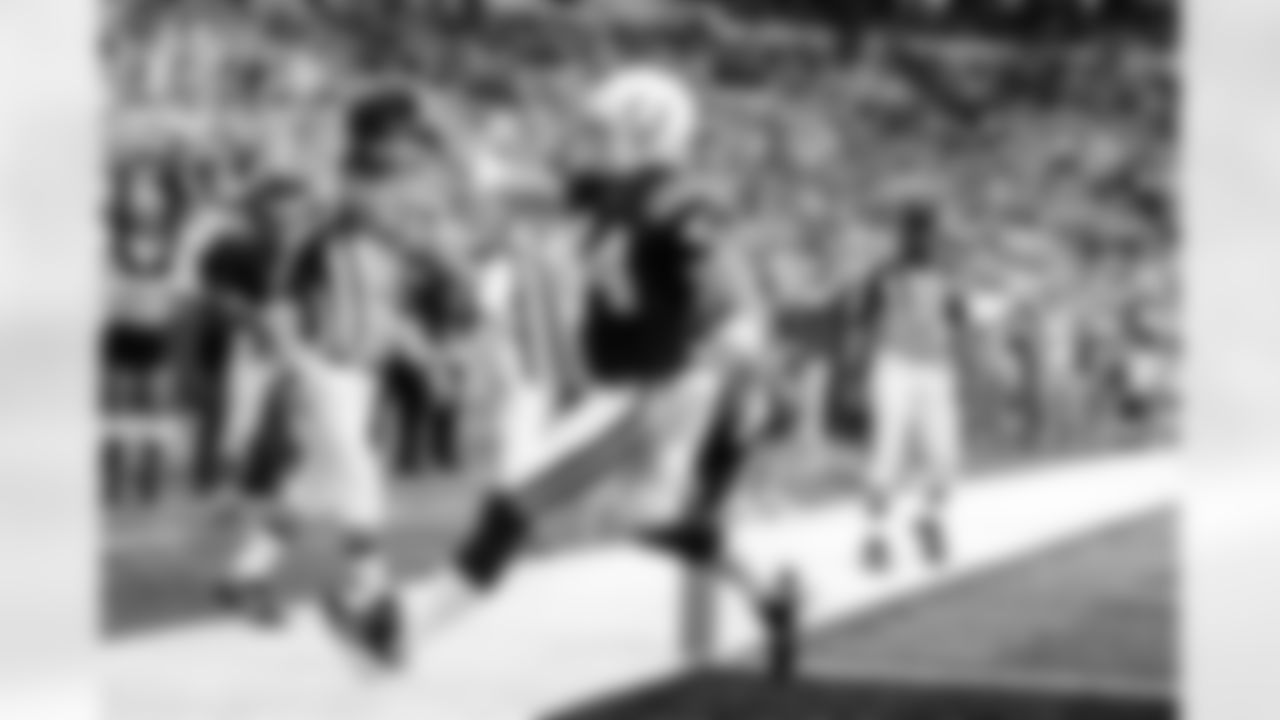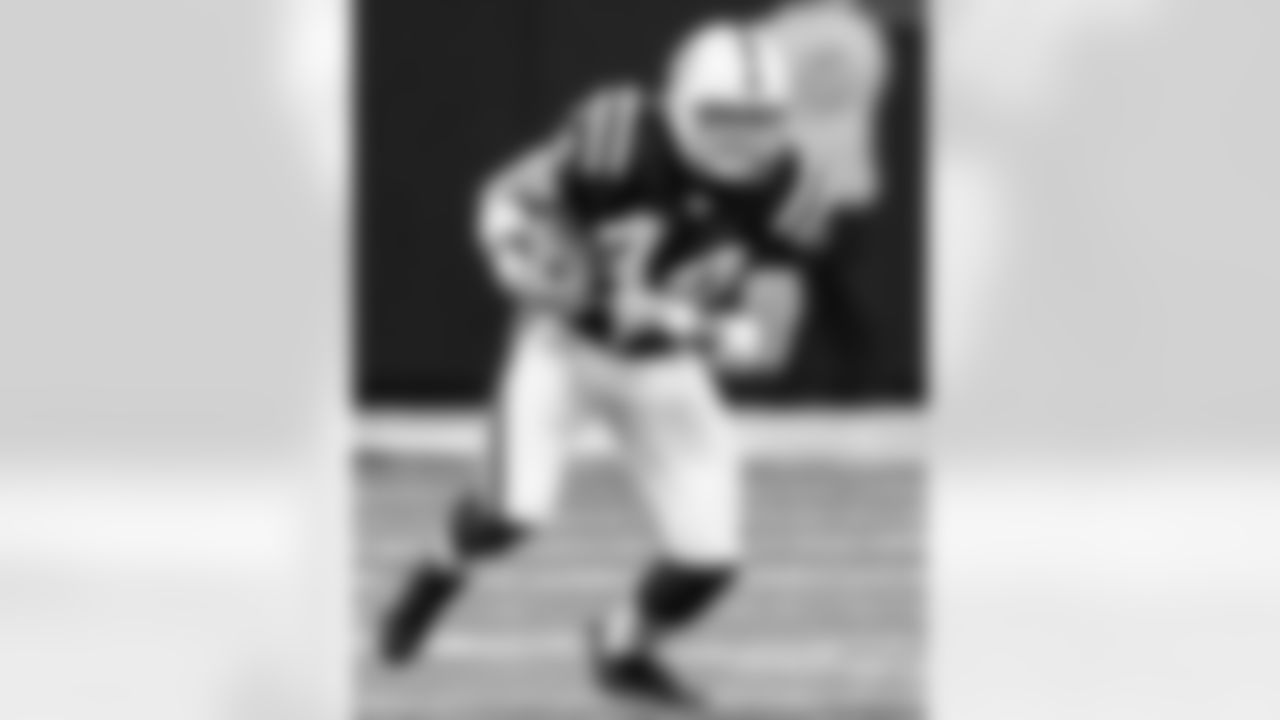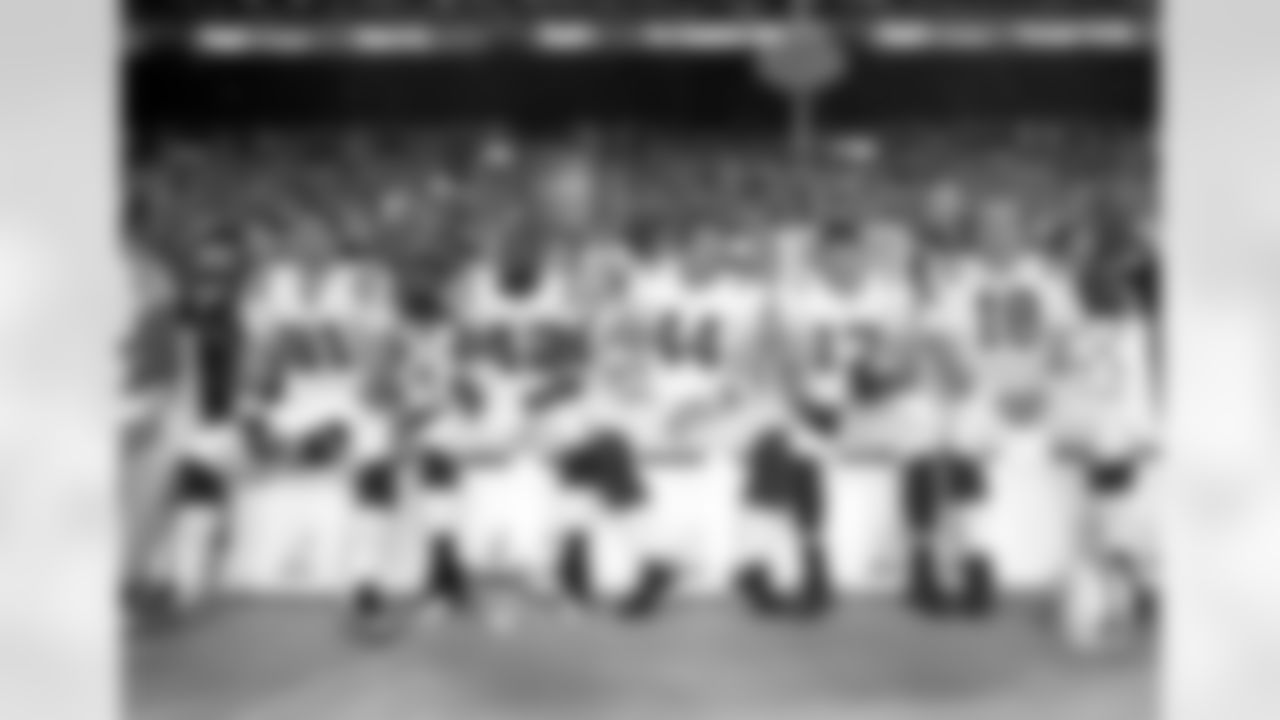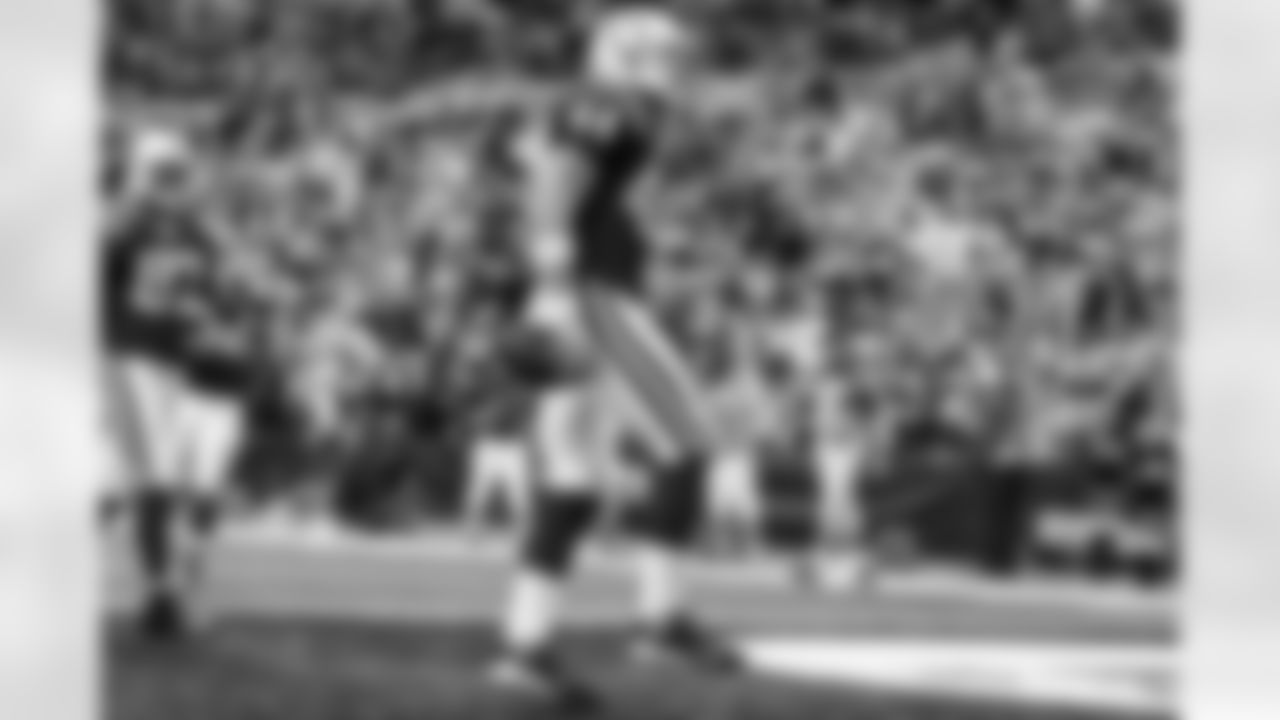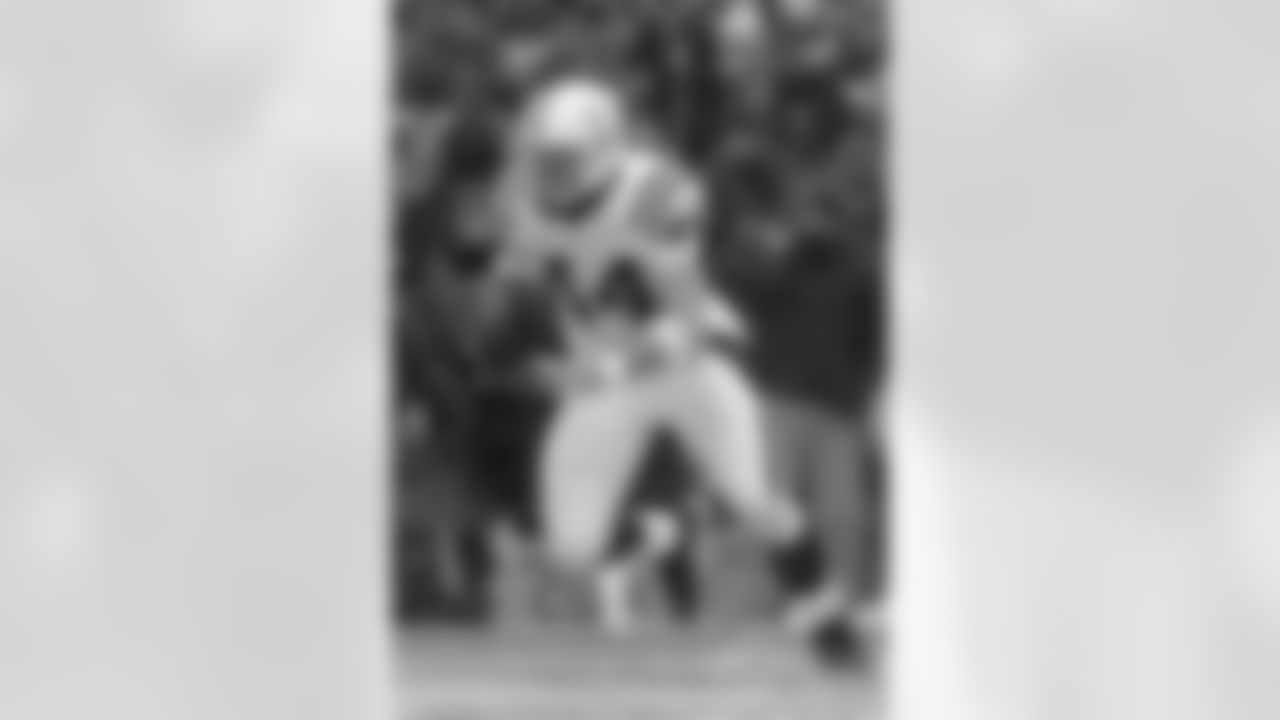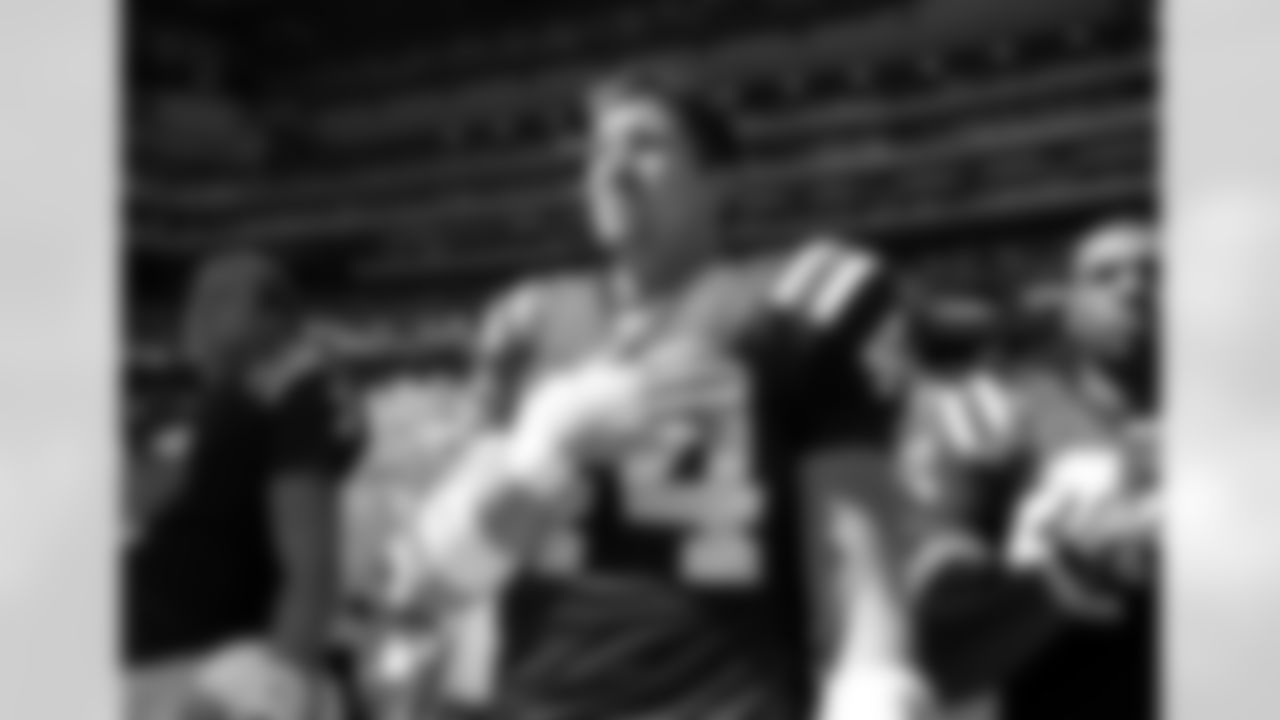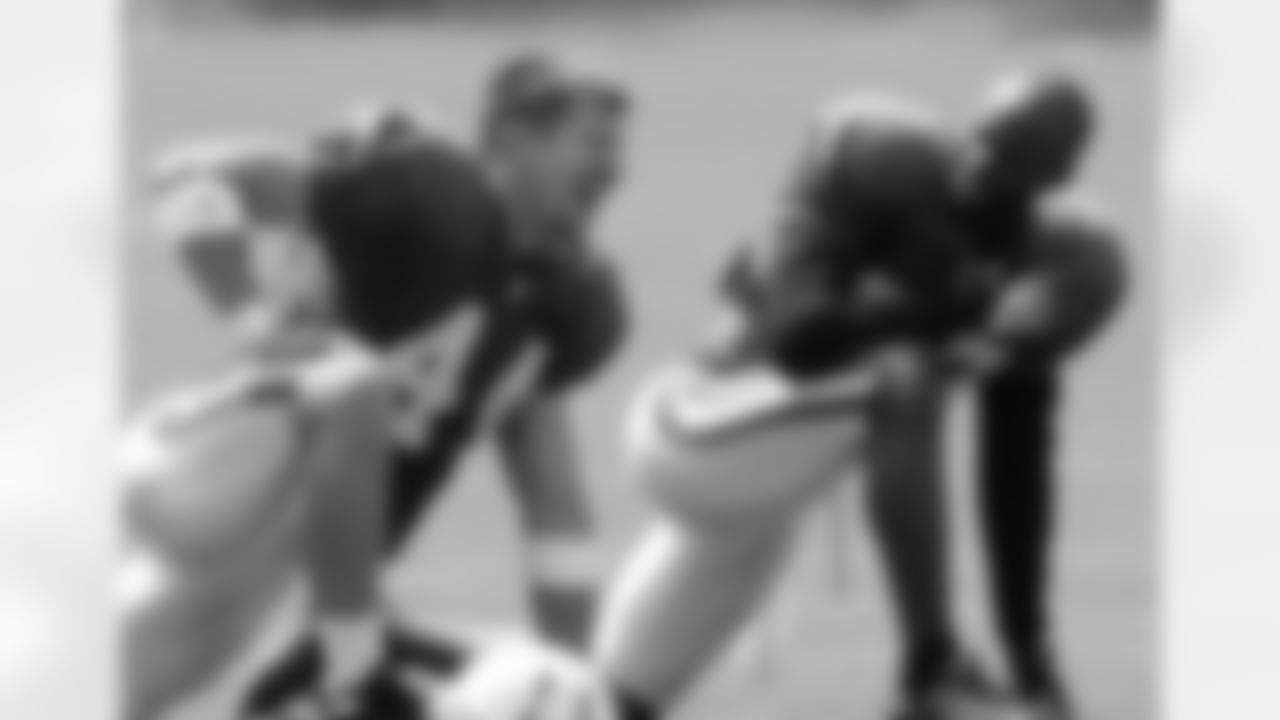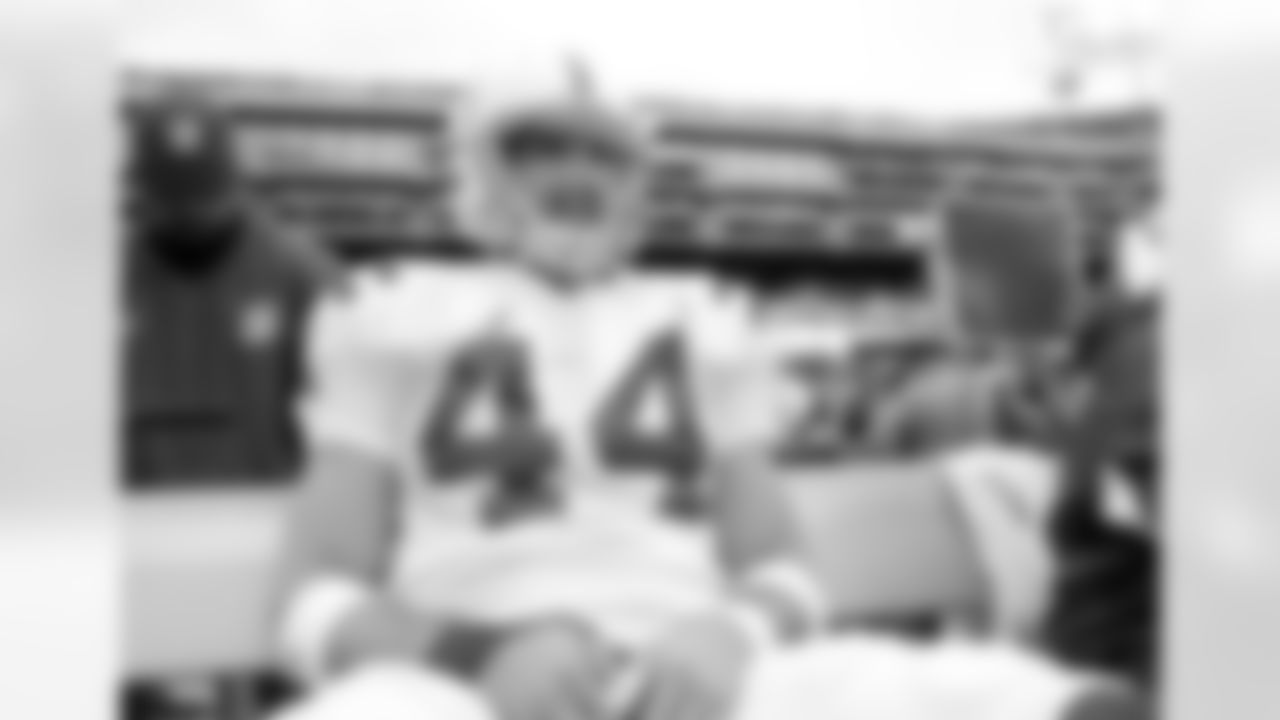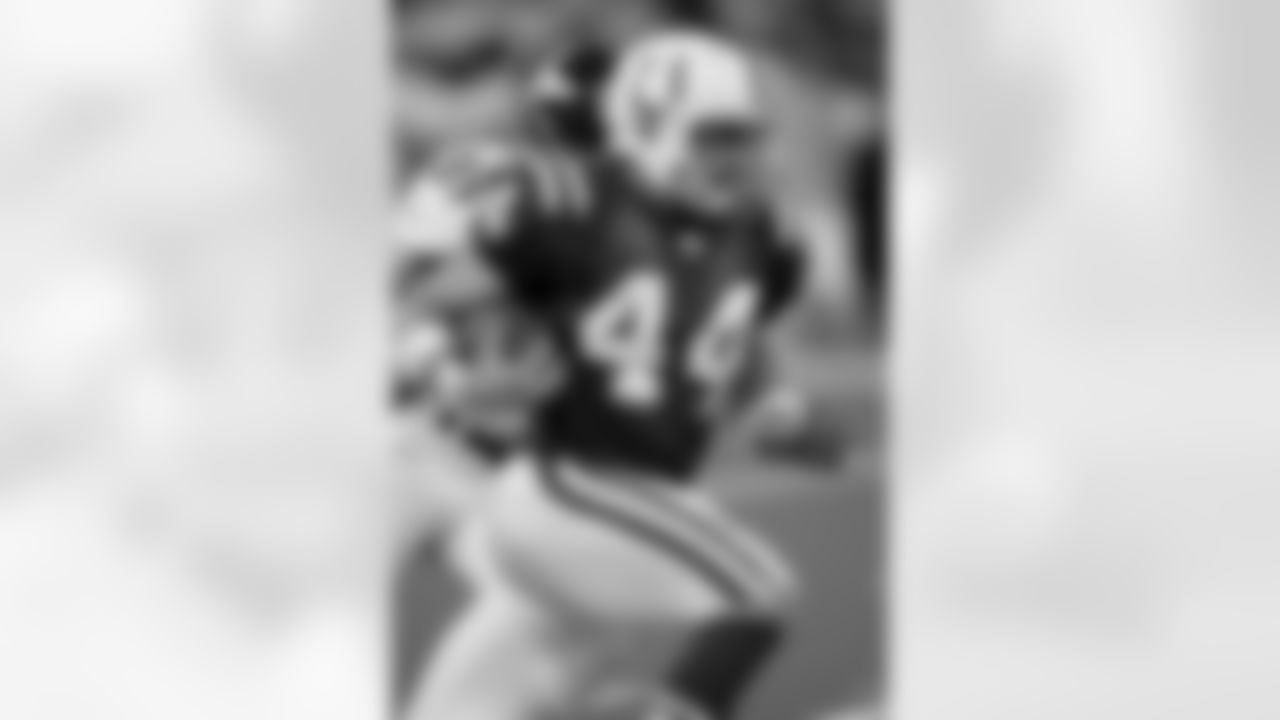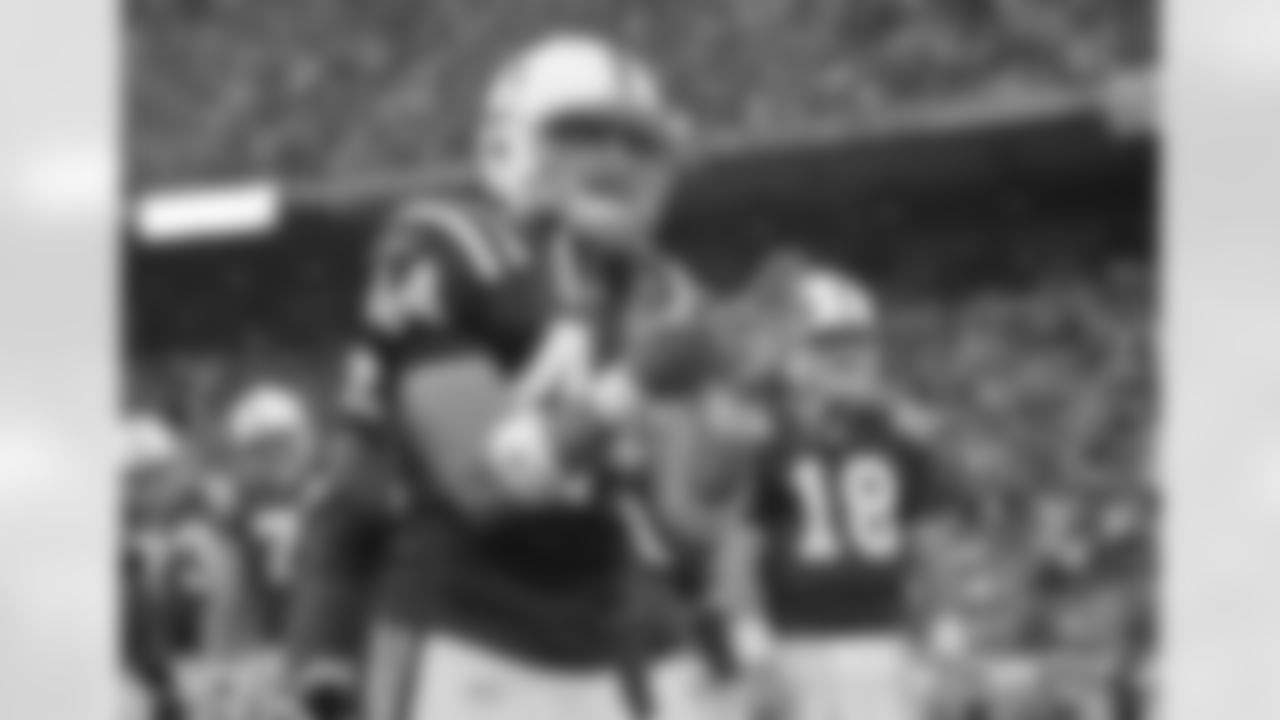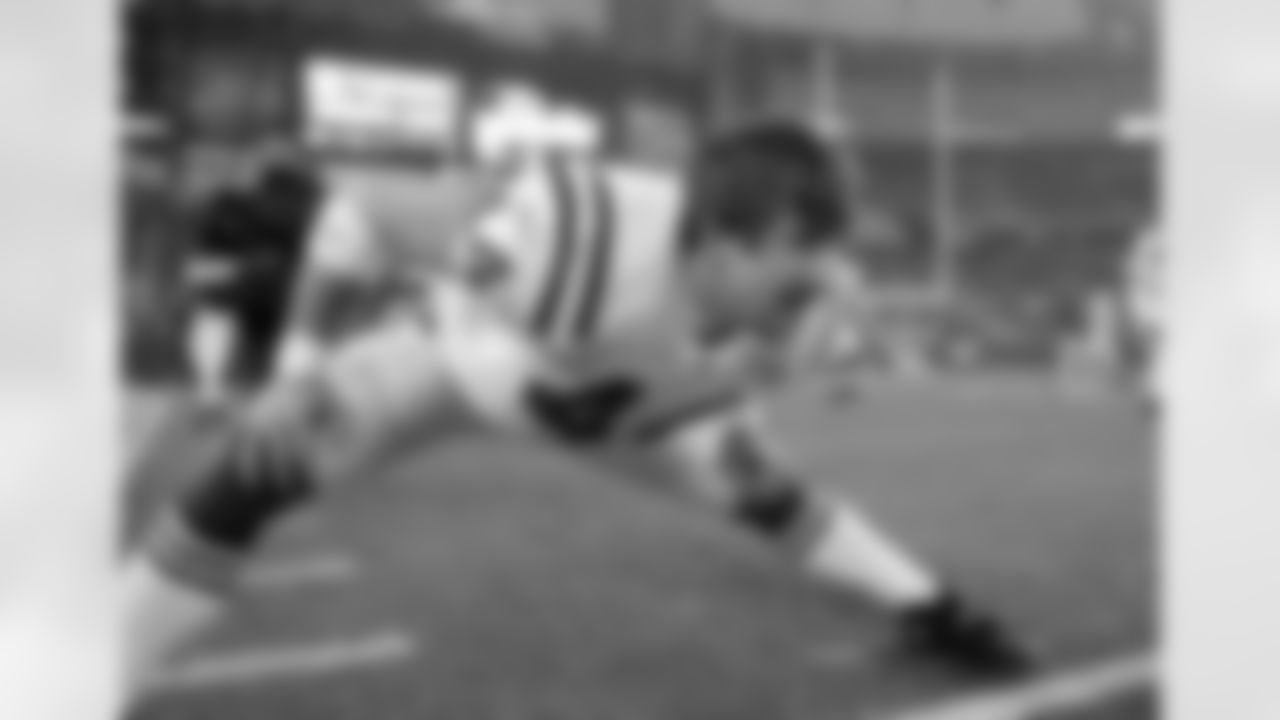As the Colts prepare to unveil Dallas Clark as the newest member of their Ring of Honor at halftime on Sunday, those who were with him during his nine seasons in Indianapolis see his legacy defined by a few things.
He modernized how tight ends were viewed in the NFL, yet he was a throwback kind of football player. He was the sort of teammate who could ingratiate himself with wide receivers like Reggie Wayne and Marvin Harrison while being adopted by Jeff Saturday and Tarik Glenn as an honorary offensive lineman. He was intensely competitive and took his work seriously, yet he was a goofy, fun-loving guy who was always up to join in on a Peyton Manning training camp prank. His intensity never wavered, whether it was a preseason game or the AFC Championship.
And as good of a player as Clark was, he was an even better guy to be around. All these years later, call up anyone who was around him and they'll gush about everything that brought "Ol' Dal" to this point, where he'll take his deserving spot among franchise legends.
"It was a real honor and privilege to be his teammate all those years with the Colts," Manning said.
"Dallas is my favorite teammate," Wayne said.
"Just a great teammate, man," Glenn said.
"I just think of energy, of fun, of enjoying a good time and being a great teammate – those are my memories of Dallas," Tony Dungy said. "Whatever it takes to elevate everybody's play and to be the best he could be. Great on the practice field, great in the meeting rooms, always upbeat, just a really fun person to be around. So forget about the great athlete and competitiveness and all that, he made the game fun."
"I'm so happy for him," Saturday said. "I can't wait to be up there and be standing on that field watching him get that jacket put on him, because he deserves it."
***
Dungy first met Clark in a cramped hotel room at the Holiday Inn in downtown Indianapolis in 2003. Clark was going through his car wash of 15-minute interviews at the NFL Combine, where he was generally peppered with questions about football – his favorite plays from his collegiate career at Iowa, what the strengths and weaknesses of his game were, etc.
Dungy went down a different path when Clark sat down, asking him about who he was as a person. The Colts were looked for a great player with their first-round pick, of course, but what Dungy, general manager Bill Polian and Owner and CEO Jim Irsay really wanted was a great fit for the team's culture. That on-and-off-the-field combination led the Colts to select Dwight Freeney in the first round of the 2002 NFL Draft, and a year later, it was leading them toward this Iowa farm kid-turned-Hawkeye standout.
Clark left the room thinking the Colts wanted him. Two months later, after he arrived in Indianapolis as the 24th overall pick in the 2003 NFL Draft, he explained to Dungy why.
"'Coach, you really fooled me,'" Dungy recalled Clark telling him, "'because I didn't think you were interested. In our combine conversation, you asked me about my family, you asked me about growing up, you asked me about my life, my school, my degree, what I want to do. You didn't talk to me about football at all. I thought you were just blowing me off, and I had no idea you guys were interested."
Dungy, of course, came away with a different impression.
"It was so refreshing to me to hear his answers," Dungy said. "I said, 'this is the guy we need.'"
As soon as Clark arrived, he assimilated himself into a culture established by guys like Manning, Glenn, Saturday, Harrison and Edgerrin James. Dungy's instincts were spot on.
"He just fit right in," Manning said. "I think Jim and Bill and Tony had a criteria for the kind of players they wanted to bring in. It seems like all the guys they were bringing in, that was the criteria — do they truly love football, are they unselfish, is it more about the team than the individual. And when you get a bunch of players like that, you have a chance to be successful. And Dallas was just the perfect example of all those things, so he fit right in."
"Dallas was just one of the guys right away," Glenn said. "I think his work ethic and his ability to relationally connect with the team was really authentic and natural to his personality."
"He fit because he worked hard and he didn't care what was asked, he was going to give it everything he had," Saturday said. "There were a lot of pieces and parts in place, but you always need to add good people and good players, and that's what we added with him in that draft."
***
It's 1 o'clock in the morning on Jan. 22, 2007, and Dungy is with his family at Palomino in downtown Indianapolis basking in the afterglow of winning the AFC Championship. As he reflects on the run he and his team were on, his mind drifted to three years prior.
Just after Thanksgiving, Clark broke his leg against the Patriots, ending his rookie season. Two weeks before his injury, he caught five passes for 100 yards against the Jets. He was coming on strong before abrupt end to Year 1.
The Colts went on to reach the AFC Championship, where they again met Tom Brady's Patriots, losing 24-14 in Foxborough. Dungy thought back to that night in Massachusetts, then to what he just witnessed in Indianapolis.
"Man," Dungy thought, amid all the celebrating, "if we had Dallas in 2003, we might've been in the same situation (as AFC champions)."
That's how important Clark was to the Colts' offense from the moment he stepped on the field.
"The way I describe Dallas is, the defense, they had to spend time having a conversation about Dallas," Manning said. "'How are we going to treat him? Are we going to put a linebacker on him, are we going to put a safety or a cornerback on him?' And whatever they did, there was something that they were going to be vulnerable to. You put a linebacker on him, they probably can't cover him. They put a defensive back on him, okay, what's that defensive back going to do if we run the ball.
"It's just nice having a player on your team the defense has to spend some time having a conversation about, and I was glad we had Dallas on our team."
Clark's ability as someone who could dig out defensive backs in the run game and blow by linebackers in the passing game was a special sauce for a Colts' offense that had some of the best players in the NFL, but needed the ability to pivot to pass-centric or run-centric game plans based on the competition.
"When we had that type of versatility in a player, it takes your offense to a whole other level," Glenn said. "We scored a lot of points and we were able to create a lot of mismatches on offense, and it just brought a dynamic and excitement to our offense that we didn't have before Dallas got there."
The Colts had a top-three offense in points scored every year from 2003-2007, and won at least 12 games every year from 2003-2009. The defining stretch for Clark, though, came in the 2006 playoffs.
With wide receiver Brandon Stokley out with an injury, the Colts' offense morphed into a super-charged version of 12 personnel (one running back, two tight ends, two wide receivers). Clark would usually play in-line on first and second down, lining up with his hand in the dirt next to the offensive line. On third down, Clark would shift into the slot, replacing Stokley in those situations.
Clark – who sustained an injury late in the regular season and narrowly avoided season-ending injured reserve – caught 21 passes for 317 yards, and 16 of his receptions accounted for a first down. The only tight end in NFL history who's had more receiving yards in a single postseason is Travis Kelce (2020, 2023).
"Technically we were two tight ends on first down, second down, third down, but on third down, Dallas was really playing wide receiver," Manning said. "But the defense didn't know that. The defense had to honor the fact that you might do your two tight ends plays. That speaks to his versatility. I think that's what we liked out of him coming out of Iowa, that he could run but yet he played tight end so he was going to be able to block. It was a real credit to him just how versatile he was."
"He had just a dominant, dominant playoffs," Dungy said. "And we certainly would not have gone to the Super Bowl without it."
***
Nowadays, plenty of tight ends have the sort of positional versatility Clark had. That wasn't the case two decades ago – Clark was a rare player in the mid-2000s, when few tight ends had the skillset to both line up in-line and in the slot. Clark, then, was on the cutting edge of what tight ends could be asked to do in the NFL.
"Of course, Tony Gonzalez was doing his thing, Antonio Gates — those guys got a lot of attention," Manning said. "But you ask any defensive player that was playing against us during that time, and Dallas was a real force."
Yet for as modern a tight end as Clark was, he played like a throwback from a bygone era.
"No matter what the weather was, cold, sleet, snow, it just didn't matter. No gloves," Wayne said. "A lot of people didn't think he was a big time blocker, but he surprised a lot of people. Man, he's a he's one of those guys that don't mind getting his hands dirty and going to get after you."
Clark earned the respect of receivers like Wayne and Harrison for the time he spent working on routes with them. And he earned the respect of the Colts' offensive line for his dedication to the sort of dirty work that often goes unnoticed by the general public.
"The majority of the guys that play the tight end position, typically they love the glamour and notoriety of being able to catch the ball and catch touchdowns," Glenn said. "But Dallas was pretty old school in the sense of — not a whole lot of celebration. He was really about bringing his lunch box to work, being physical and trying to create a reputation of just being a football player."
Clark was so genuinely respected by the Colts' offensive line that they considered him to be one of them.
"Let me tell you, that's hard to get in – that's a hard, hard group to get in," Saturday said. "We work way too freaking hard and don't get near the attention we should. And so if you're an attention-getter, which as a skill position player in the Colts' offense, you were going to get it – he was still one of us. That meant the world to us."
From Manning's perch under center, the care Clark put into working with both the Colts' receivers and offensive line was another reason why he was such an outstanding fit for his team's culture.
"I just appreciated his professionalism, the way he worked at his craft — his blocking, his route-running," Manning said. "He would finish some of his tight end blocking drills and he would come down or throw routes or one-on-one with the receivers. He'd talk to Marvin and Reggie about how to run a certain route out wide as a receiver."
Clark wasn't just a tireless worker – his positive attitude had a major impact on the Colts, too. When players made a mistake or hit a rough patch, Clark was the first guy to talk to them, offering words of encouragement to go get the next play.
"The ultimate teammate," Wayne said. "He never had a bad day. He kept everybody together. ... He was the glue that kept us all together when we were in difficult times."
"He just had a great attitude every single day," Manning said. "He was always upbeat, whether it was in the dog days of training camp or after a long conditioning session, throwing, he was always just upbeat. He loved everything about it, and those were the kind of guys that I enjoyed playing with, they were going to give you everything that they had. I don't think it ever felt like work to Dallas."
"You'd want 100 guys like him in a locker room," Saturday said.
***
The Colts have inducted plenty of members of those great 2000s teams into their Ring of Honor in recent years – Harrison, James, Saturday, Manning, Wayne, Freeney, Robert Mathis and Glenn have all gone up at Lucas Oil Stadium in the last decade or so. Every time that group gets together to honor another name permanently going up at Lucas Oil Stadium, they reflect on that person's legacy, and how they contributed to such a successful era of Colts football.
On Sunday, when those guys all get back together in Indianapolis, they'll think back to everything No. 44 did on and off the field – and how Dallas Clark belongs next to their names among the greatest players in franchise history.
"The further we get away from it and the more I see how good we really were and how these guys – we had a squad," Saturday said. "And it's all about people. It's the people, man. We had good people on our team and he's just another example of it, which I feel so fortunate to have played with him."
Dallas Clark, Colts' All-Pro tight end and the newest member of the Colts Ring of Honor through the years.
